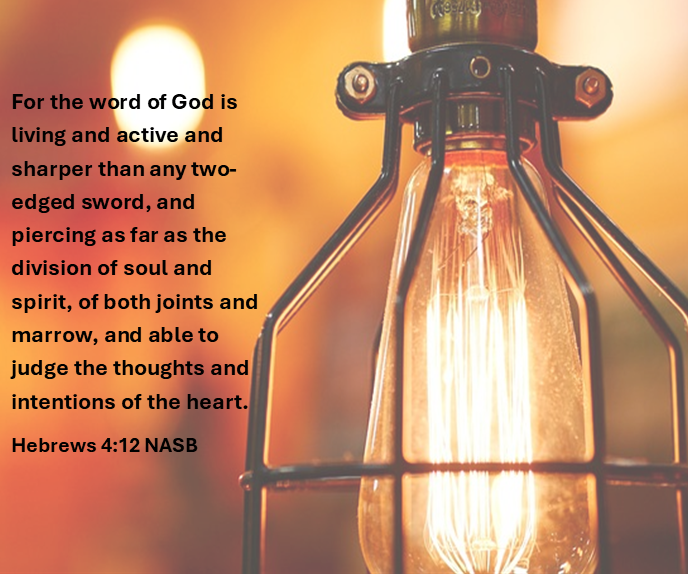The Bible very often compares our relationship with God to a marriage. A different kind of marriage, of course, but this comparison to earthly things helps us to have a better understanding about eternal things.
If you are ever on social media and converse with people who like to discuss theology, you have probably run across a discussion (or argument) about salvation and works and once-saved-always-saved, etc. People get very heated about their understandings of these things, and I am also very passionate about the things of God, though I’m not sure it’s helpful to yell at other Christians about it on the internet.
Let me start by saying this: I absolutely believe salvation is not the result of my works (Ephesians 2:4-9); I absolutely believe that salvation yields works (Ephesians 2:10); and I absolutely believe that there is nothing I can do to earn eternal life (Ephesians 2:8-9; Romans 6:23). Period. But to bring some clarity to the conversations on these topics, it helps me to think about a person’s relationship with Christ, as similar to a marriage.
When my husband asked me to be his wife, and I said yes, we had a ceremony in which we pledged our life-long love to one another. Subsequently, we moved in with each other and began making all of our plans together, as a couple. And we have done so for 26 years . . . I mean mostly. We’re not perfect. But that’s not the point.
Now, if we are comparing our relationship with Christ to marriage, let me ask you:
Do you think that the way we both lived our lives changed after we married each other? Of course it did, right? First of all, we had to begin considering each other with every decision. Where I work, where I live, what I do with my money, what I do with my time – all became decisions which affected another person to whom I was attached. And if you remember being a newlywed, you might also remember, as I do, some very heated “discussions,” which resulted from our learning and failing to consider each other as we made all these decisions. It was a learning process. But because we had made a decision to love each other for life, we persevered through those misunderstandings and learned how to love each other better, to be better at being married.
You probably agree with me completely about the paragraph above, especially if you’re married. So let me ask you this, are these changes in my life a way in which I earn my marriage to my husband? No, they aren’t. My marriage was pledged on day one; it became part of my name, my status, who I am, and it’s done. I’m married. But my marriage, my decision to be part of another human, results in big changes in my life. Likewise, when we make a decision for Christ, that decision seals the deal. He asks me to accept His gift of forgiveness and redemption and allow Him to be Lord of my life. I say yes. We probably have a moment when that decision becomes final. And, if I meant what I said, every decision from here on is made differently. It is made with deference to the Lordship of Jesus. It results in big changes in my life. I’m not working for my salvation. But my salvation results in a whole new way of being.
Let’s keep going. In my marriage, we have both done things without considering the other person. There have been legitimately heated “discussions,” tears, broken heartedness, and situations which warranted the need for forgiveness. And yet, these things did not end our marriage. My making bad decisions and hurting my husband, even deeply, does not end my marriage. My marriage is still legit. Because it is part of my identity, I am James’ wife, even when I hurt him, even when I make decisions without any consideration of who he is and what we have agreed to. But since I am his wife, and he is my husband, those bad decisions are followed by sincere apologies and steps taken to prevent those bad decisions from being repeated.
It is the same with our Christian walk. I don’t know any Christians who haven’t made terrible decisions that ignored their professed Lordship of Jesus Christ in their lives. Those decisions did not end their Christianity. Those decisions didn’t obliterate their new identity. However, upon notification and realization of whatever error was committed (i.e., the conviction of the Holy Spirit who now lives inside each Christian), the Christian turns his or her heart back toward the Lord, asks for forgiveness, and allows the Lord to cleanse them from their sin (see 1 John 1:9). When that happens, we get better at walking in full participation with the Lord and His plans.
Now consider this though. (Back to the marriage example). What if, after our wedding ceremony, I had gotten in a taxi, moved to New York, lost my husband’s phone number, and started a new life without any consideration or communication with my husband? What would have happened to our marriage? Would you agree that marriage never even began? That those vows we made were meaningless to me? Hopefully, in that situation, my husband will realize that our marriage wasn’t sincere on my part, and he would have it annulled, because I didn’t even follow through on the very first step of being a married person.
Similarly, many people believe they are “saved,” because they prayed a prayer. But if they prayed that prayer, invited Jesus into their heart and asked Him to be their Lord, and then continued on with their lives as though nothing has changed, then the evidence shows their prayer was not sincere. They didn’t mean it. They didn’t move in with Jesus; they didn’t change their plans; they didn’t consider Him in any of their decisions; and they didn’t make Him Lord. Those people should have no assurance of salvation, because, like marriage, salvation is a two-way relationship, not a one way.
Now, one more example. If after years of marriage, learning to be a good wife, growing with my husband, I get distracted by other things. Maybe I decide that it is more important to me to be an Alaskan fisher than to spend my life with my husband. I might even sell our house, take the money, move to Alaska, buy a boat, change my phone number, make all my decisions based on what I feel like doing, and I make no attempt to reconnect with my husband. I tell people I’m not married; I make new friends, new habits, I spend my money how I want to. Years go by. Answer me this: how’s my marriage?
My husband may not have rejected me in any way, but I have removed myself from our marriage arrangement. Was I married for the first however-many-years? Yes. Fully, completely committed. I was married. Am I still married? That’s questionable.
What if my husband tracks me down, says he’ll be a fisherman too, and I say…that’s ok. I like my new life. Am I still married? Even if the marriage certificate still exists, am I still married? If I have removed myself from the vows of marriage, I have decided that my decisions have nothing to do with my husband, I don’t change my mind and return to him, do I still have a marriage? Would my husband’s kidnapping me and taking me back home to Texas be a way to restore our marriage at this point? If I have decided I don’t want to be part of this marriage, is there anything my husband can do without my cooperation to restore our marriage relationship? No. I was married, but I have removed myself from that marriage.
Similarly, if after walking with the Lord, I remove myself from that relationship, I make all my decisions without regard to the Lordship of Christ, if when He calls me back to Himself I say that I really don’t want to live for Him anymore . . . Maybe I have decided that I love money and riches more than the Lord, and I don’t want to yield to His leadership anymore. Am I still a Christian? No. Was I a Christian? Yeah.
Many people seem to believe that if you ever prayed “the prayer,” you’re going to Heaven. But if I have decided I do not want the Lordship of Jesus, am I expecting Him to kidnap me and take me to heaven when I die? Does that make sense?
You cannot earn your salvation any more than I can earn my marriage. But we can leave both.
At this point, you might respond to me that the Bible clearly tells us that no one can snatch us out of the Lord’s hand (John 10:28), and I agree completely. Let’s suppose now, that I have been married to my husband for some period of time – even a single day – and someone comes into our home and seeks to take me away – to make me the wife of someone else. In human terms, I know with certainty that my husband would lose his own life and destroy everything within his reach, in an effort to defend me from the evil person who would seek to take me away. And if I was taken away without his knowledge, he would spend every energy and every cent to find me and bring me home. Why? Because I am his wife, and no matter where I am, I am still his wife. And when he finds me, I will eagerly return to him and away from the evil that has tried to keep me from him.
The Lord, however, is all powerful, and if anyone tries to “snatch me away” from Him, He will defend me with the same passion, but there is no doubt about His success, because He is God. And He already fought the fight that cost His life in order secure my safety. That’s what He did on the cross. No one can snatch me from His hand.
My salvation is secure.
If what I have said so far is not sitting well with you, please consider the Parable of the Sower.
In Luke 8, Jesus tells the Parable of the Sower, and unlike many parables, this time we are given Jesus’ own specific interpretation of the parable He tells. It’s a boring story at first, about a person, someone like a farmer or a gardener, planting seeds in all sorts of places – in the path where people walk, on rocks, in thorns, and on good ground, where the seed sprouted and produced a harvest. This doesn’t seem very enlightening; it’s kind of gardening 101, but for 3rd graders. But then we get to hear how Jesus explains this parable to His disciples and why it matters. This is in Luke 8:11-15.
He tells His disciples that the seed In His story represents the word of God (verse 11). Then in verse 13, He says, “Those on the rock are the ones who receive the word with joy when they hear it, but they have no root. They believe for a while, but in a time of testing fall away.”
When I read this scripture and many others, I am very concerned about people I love who have no evidence in their lives of having submitted to the Lordship of Jesus, yet believe they have placed their faith in Him by simply having prayed a prayer as a child (or any other time). I’m afraid this is largely the fault of well-meaning churches and church people, so eager to bring people to know Jesus that they have treated salvation like a series of magic words, instead of the serious life commitment that it is, thus giving false assurance to hoards of people who prayed a prayer and never moved in with Jesus – so to speak – or even realized they needed to. If that was you, it is my sincere prayer that you renew those vows and turn your life over, and submit to the Lordship of Jesus today. Please take the words of Jesus seriously and consider His question in Luke 6:46. He said, “Why do you call me, ‘Lord, Lord,’ and don’t do what I tell you?” and Luke 8:21, where Jesus said that His family is “those who hear the word of God and do it.”







